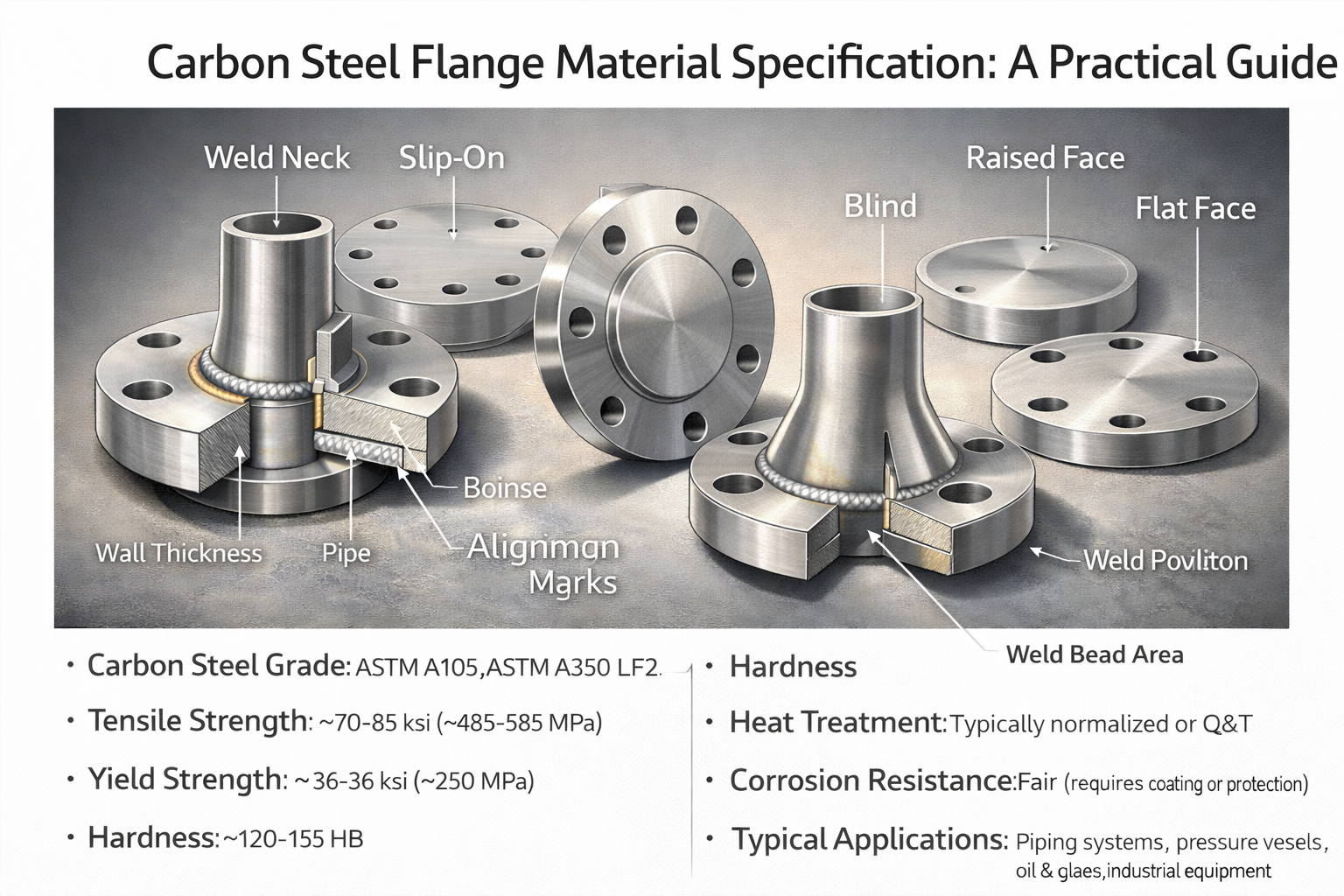
Carbon Steel Flange Material Specification: A Practical Guide
This article explains carbon steel flange material specifications. These specifications define the steel's chemical makeup and physical properties. Using the correct specification ensures your flanges are strong, safe, and suitable for the job.

